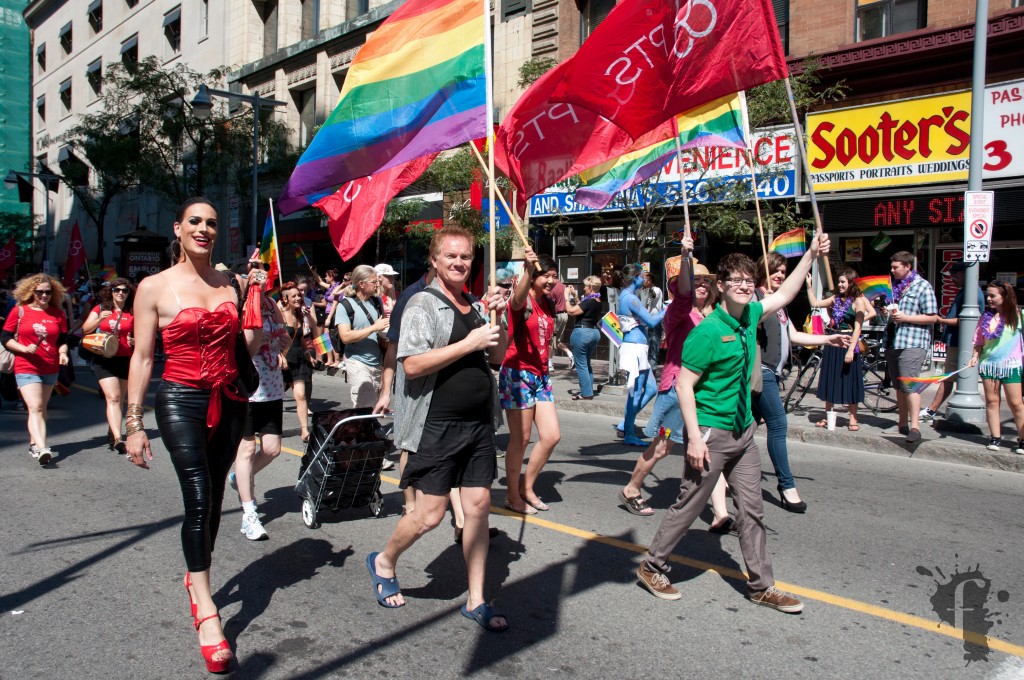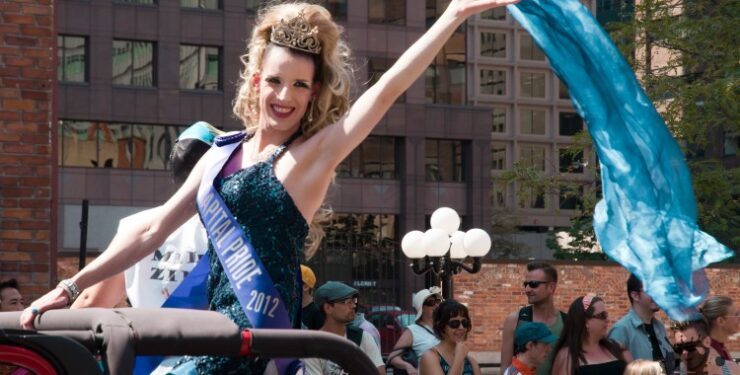LGBT community marches for diversity, acceptance, and self-expression
Dayna Prest | Fulcrum Contributor
OTTAWA CAPITAL PRIDE 2012 culminated in a fabulous display by Ottawa’s queer community during the annual pride parade on Aug. 26.
The theme of this year’s pride celebrations was “come out and play”—a play on words that was taken as a call to action by the hundreds of supporters who attended receptions, boat cruises, vigils, and other events from Aug. 17 to 26. It’s at this time every August that the city hosts official pride celebrations and LGBT groups and supporters demonstrate the meaning of pride.
Diversity, acceptance, and self-expression are tenets of a vibrant queer community such as the one that exists in Ottawa.
With more than 80 groups participating in the parade and an estimated total of 35,000 in attendance, the diversity of people, perspectives, and lifestyles was a sight to take in. Hundreds of spectators cheered on the marchers and were treated to colourful floats, safe sex tips, and fun giveaways. The atmosphere at the parade showed just how proud the community is—almost everyone was friendly, smiling, and wishing each other “happy pride.”
 Diversity, acceptance, and self-expression are tenets of a vibrant queer community such as the one that exists in Ottawa.
Diversity, acceptance, and self-expression are tenets of a vibrant queer community such as the one that exists in Ottawa.
“We’re definitely a very diverse group,” said Capital Pride Chair Loresa Novy. “We have lots of drag queens and drag kings … but we also have families, organizations like Ten Oaks [a summer camp project for children from LGBT families], and different LGBT family groups.”
With the official designation of Ottawa’s first gay village on Bank Street this past November, and numerous local and national businesses and organizations supporting Pride Week, there was much cause for celebration.
“It was well attended,” said Novy. “It was our largest one yet.”
Pride Week in places like Ottawa is a display of diversity, but it’s also a chance to confront issues faced by the queer community such as homophobic bullying, street harassment, and discrimination.
In June, Ontario saw the passage of Toby’s Act, an addition to the Human Rights Code that would officially codify the rights of transgendered people. The provincial government also passed the Accepting Schools Act in June, as part of its anti-bullying legislation that would enforce zero tolerance for sexual assault, gender-based violence, and incidents involving homophobia in Ontario schools.
The significance of pride celebrations this year was also emphasized by recent international events, such as the ban on pride celebrations in Russia for the next 100 years. The human rights of the LGBT community have been legally restricted in places all around the world, as has their ability to protest to get those rights back.
The first pride celebration in Ottawa was organized in 1986. It has since expanded from gay pride to the whole LGBT community and has provided a chance for everyone to come together not only to celebrate, but also to reflect on how far the struggle for rights has come, and how far it still has to go.
—with files from Adam Feibel
–photos by Justin Labelle




